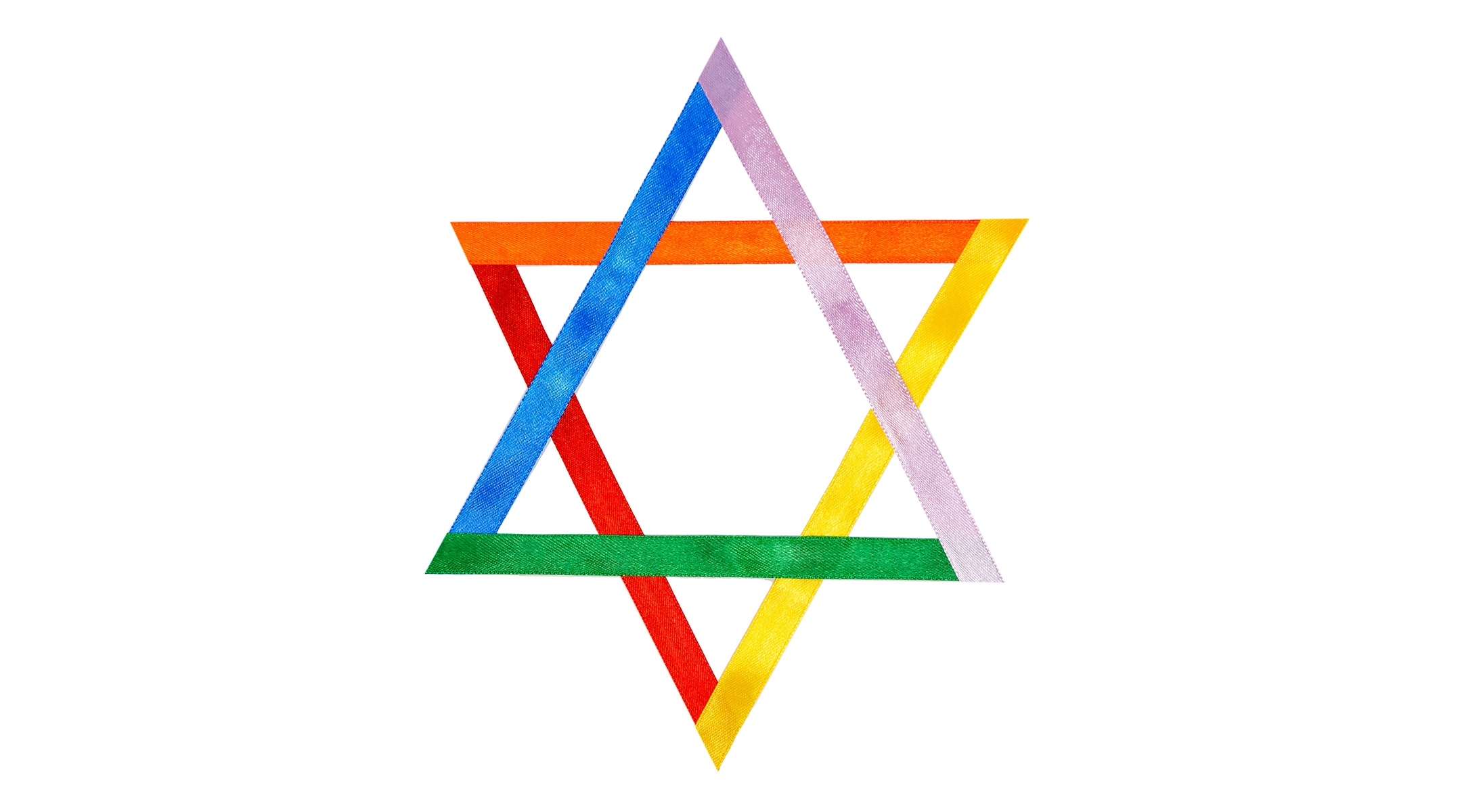(JTA) — In 2012, after eight years of army service, I left the military and began my gender transition. Eleven years later, as a Black-Jewish-transgender man, upon arriving in South Carolina for a meeting of the Wexner Field Fellowship for Jewish professionals, I wondered whether using an airport restroom that matched my identity could put me on a collision course with law enforcement.
South Carolina was one of a slew of states that had considered “bathroom bills,” and I had to check whether I’d run afoul of the law before relieving myself. I waited until I checked into my hotel room just in case and wondered how it must have felt for the transgender people who lived there full time.
That experience of wanting to leave a place where you are vulnerable is not unknown to me as a Jew; migration is at the heart of the Jewish experience. For millennia we were labeled a “wandering people” as we sought safety and freedom. Two million Jews came to the United States from Eastern Europe at the turn of the 20th century; they fled oppression and sought a better life. It is also familiar from other aspects of my heritage. Six million Black people moved from the American South to other regions of the country from the 1910s through the 1970s, changing the very complexion of our society in profound and far-reaching ways.
But today, a new migration is underway, a terrible, painful one in which trans people are being forced to move away from states in which they face discrimination, disparagement and dehumanization on a daily basis.
Even as major metropolises such as New York flew rainbow flags this month, in other parts of the country, many transgender people were packing their belongings or pondering if now was the time to join the exodus.
This year, there have been over 500 pieces of proposed anti-LGBTQ+ legislation with a specific focus on the transgender community. Some states have enacted legislation that restricts transgender rights in healthcare, education and participation in sports. Others are restricting transgender people’s access to gender-affirming healthcare, such as hormone therapy and gender affirming surgeries. An internal refugee crisis is now brewing as over 130,000 transgender individuals and their families have fled states where anti-transgender legislation has been enacted, with over one million Americans considering a similar path.
Our Jewish community is not immune to this new reality. Yet still, Jewish communal leaders in these states are grappling with how to best support their staff and community members while remaining in compliance with ever-changing legislation.
While anti-transgender legislation has occupied significant attention in the current news cycle, there are 1.6 million transgender individuals living in the United States, half of a percent. However, when we focus on the younger demographic between the ages of 13 to 17, we find that they make up 300,000 of the total transgender population, one in five. Although this seems like an insignificant amount of the American population, we must remember that the Jewish community is approximately 2.4% of the population, 7.4 million. Imagine if a quarter or half of all Jews in the impacted states were questioning their basic civil rights, access to medical care, security over their bodies, or whether to leave their homes?
Fortunately, there is reason for hope. When I shared my disconcerting South Carolina bathroom experience with colleagues at the Wexner gathering, I was overwhelmed by the shows of support, including from many parents of transgender or gender non-conforming children who had experienced similar uncomfortable experiences with their children. Most surprisingly, a black-hatted, bearded Orthodox rabbi approached me and stuck out his hand. Rabbi Mike Moskowitz, who has a transgender family member and has fought to create inclusion for transgender people in Orthodox Judaism and beyond, saw me and my humanity. He has been a powerful advocate for how we can embrace and uplift trans members of our community through a Jewish lens.
Rabbi Moskowitz taught me that the very first chapter of the Code of Jewish Law, the Shulchan Aruch, teaches that each one of us must be “metzar vedoeg al chorban” — anguished and concerned about the destruction of the Temples, both of which fell, according to Jewish lore, on the 9th of the month of Av.
That month’s name, Av, also means father. In the same way a parent doesn’t get to pick and choose which child to care about, Moskowitz said, we as a Jewish community and broader society have to recognize that our collective liberation, safety and security are tied to ensuring everyone in our community has an opportunity to thrive.
The destruction of both Temples was the result of Jews ignoring the humanity of fellow Jews. The lesson for me is that we can’t care about God without caring for all of God’s creatures.
Rabbi Moskowitz noted we are approaching the saddest time in the Hebrew calendar, the period between the 17th of the month of Tammuz (which falls this year on July 6) and Tisha B’Av, or the 9th of Av (July 26-27). In Hebrew, this three-week period is called Bein HaMitzarim (“between the troubles”). It is connected both thematically and linguistically with the Exodus from Egypt, known in Hebrew as Yetziat Mitzrayim. Moses, he noted, was chosen to lead the Israelites out of bondage because he took on the sacred responsibility to conduct others to safety.
Though the troubles we face can be overwhelming, none of us are powerless. You can find ways to show that you care about the trans people and their loved ones in your local community. Support parents of trans kids, most of whom are fighting for their children’s right to thrive in an ever-polarizing world. Shift away from the political discourse and towards recognizing the humanity of the individual. Support those who are resisting the push to criminalize transgender expressions, such as the federal judge in Tallahassee who just struck down the statute that prohibited Florida’s Medicaid program from paying for medically necessary treatments for gender dysphoria.
Today, in the United States of America, we must follow Moses’ example and work together to stop the troubles that cause these migrations. We must not allow the situation to become so threatening that people will want to leave their familiar surroundings in search of new, safer homes. We need to do all we can to make it possible for trans people to stay in their homes and enjoy the same protections that all of us are guaranteed under the law.
JTA has documented Jewish history in real-time for over a century. Keep our journalism strong by joining us in supporting independent, award-winning reporting.







